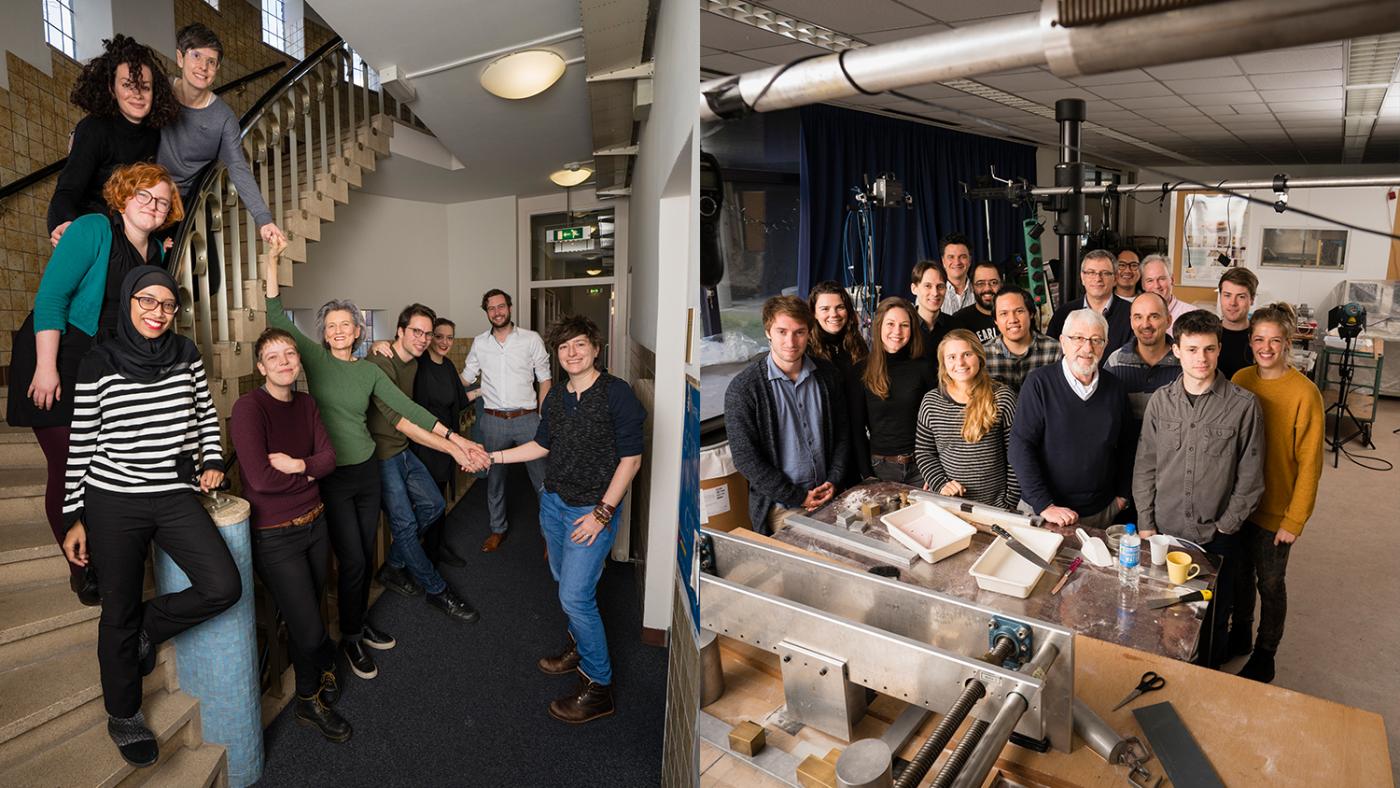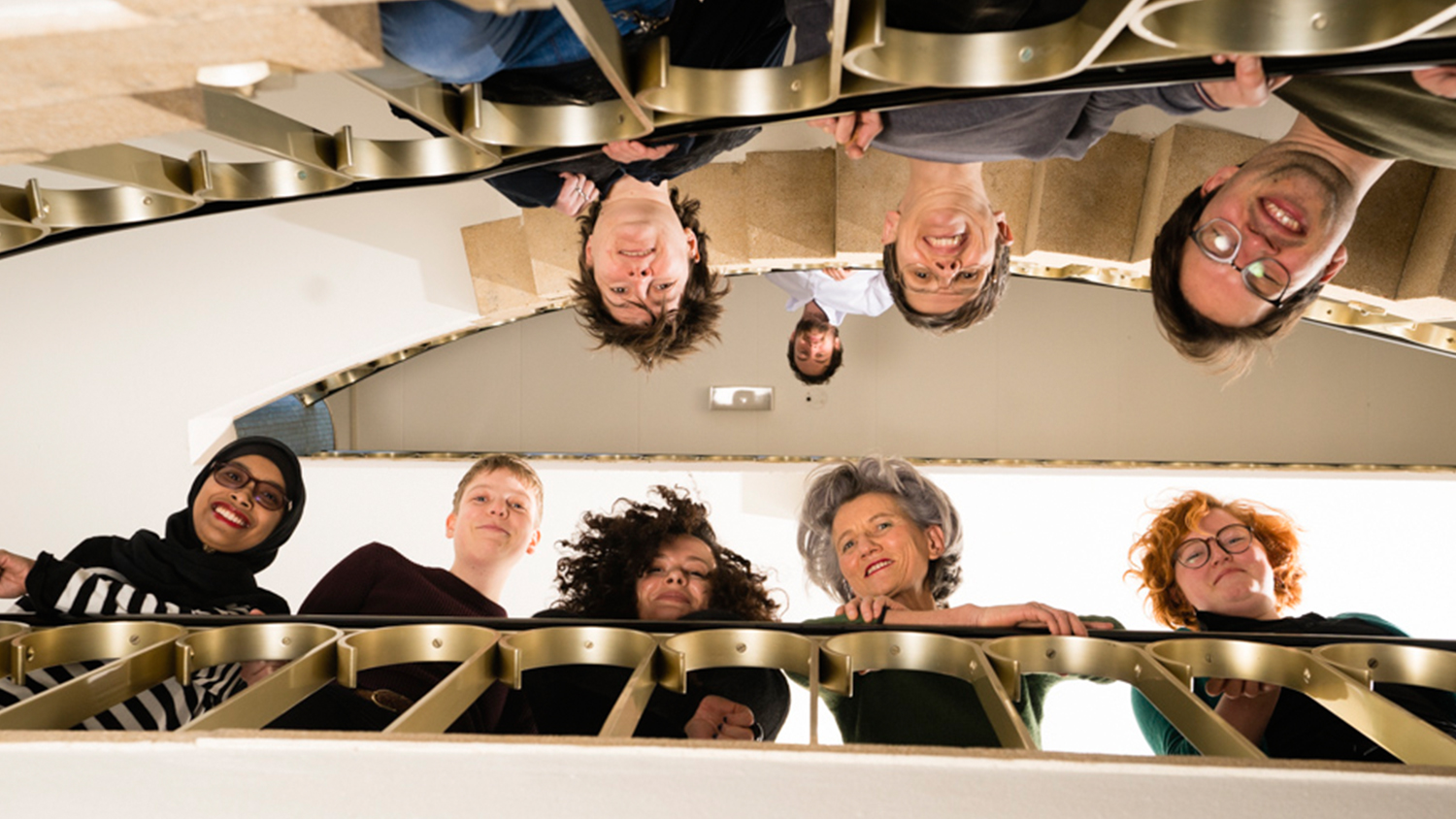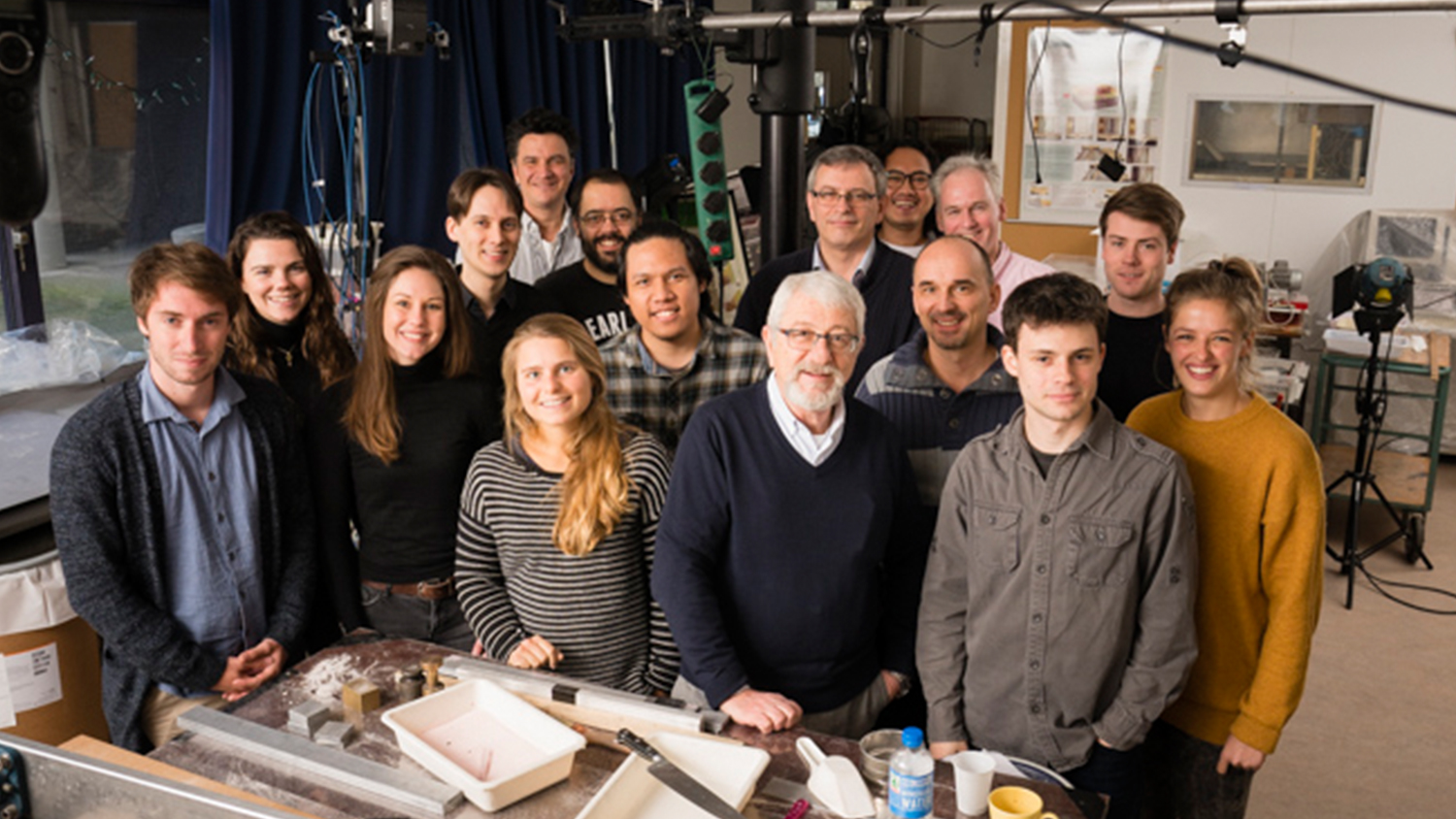‘We try to practice what we preach’

 Gender studies, Number of members: around 35, Number of nationalities: around 16, Research area: inclusivity in gender, race and sexuality
Gender studies, Number of members: around 35, Number of nationalities: around 16, Research area: inclusivity in gender, race and sexuality“The university is wise enough to raise the issue of diversity…” Rosemarie Buikema, head of the department of Gender Studies, pauses, before continuing: “…but I think our knowledge should be picked up on more. The UU sees diversity in terms of numbers and statistics, and not enough in terms of…” Professor Berteke Waaldijk, historian and teacher of Gender Studies, takes over: “… where input from a great diversity of students and researchers has a place. In order to get different types of people in, the university should ensure accessibility for everyone in a structurally different and active way.” Domitilla Olivieri, assistant professor from Italy, adds: “Diversity is not about leaning back and playing nice.” Magda Górska, assistant professor, nods and passionately adds: “The problem with diversity is that it often creates uniformity instead of pluriformity.” Waaldijk, full of irony: “Despíte being different, we’ll allow you to be a part of our university.”
The four ladies and I are sitting in a small, cosy office with high ceilings at the Muntstraat. In present company, the term ‘diversity’ is like waving a red rag to a bull. They’re so passionate about the subject they often end up speaking at the same time, one person’s words tumbling over another’s. It’s understandable: it’s not just the core business of their research, but their team has members of around sixteen different nationalities. It’s cause for some confusion, sometimes. Górska from Poland: “I work with people from different countries. Olivieri from Italy, or Jamila from…” “Jamila’s from Paris,” Buikema says. “She’s actually Egyptian-Italian,” Olivieri says. “I thought she was part Somali,” Buikema adds, doubtful – at which they all laugh.
If you think Gender Studies is only about the male-to-female ratio, an open mind toward homosexuality or fighting for gender neutrality, you’re wrong. “It’s the result of a global movement aimed at achieving inclusivity in several areas, such as gender, race and sexuality,” Buikema explains. “We try to practice what we preach. You do this by asking the ‘other’ question.” Questions asked by people who can be surprised at things that are completely normal for others. “No one’s able to see their own blind spots without help from people with knowledge from different backgrounds.”
It’s not their intention to have their ‘preaching’ come across as patronizing. “We’re not saying we’re producing definitive, universal knowledge here,” Buikema says. “Our work also implies that we should be willing to change our own way of thinking.” Olivieri: “Other sciences often seem to be proclaim a universal validity claim. People see this as ‘regular science’. Sometimes, our way of developing theory is seen as biased, because it’s political. Every discipline – even biology – is politically charged. The difference is that we’re stating so explicitly in the knowledge we bring forth.”
But what does opening up new possibilities and asking ‘the other question’ in the area of inclusivity mean in practice? “Take, for example, refugees living in asylum centers, who want to go to college, but can’t afford it,” Górska says. “What do you do? As a university, do you pat yourself on the back because you’re welcoming refugees? Or do you acknowledge that you have a responsibility to take a logistical step in their direction as well?” On a personal level, it’s a constant challenge to think in inclusive ways, as well. Buikema: “We’d organized an exchange with a friendly gender studies group from Sweden. We had a meeting in this room on the second floor that you can’t reach by elevator. One person from the group asked me: ‘I assume you took into account the fact that there’s one person in a wheelchair here?’ And I hadn’t thought about that at all…”
Where do the difficulties lie for Gender Studies as research group? “We’re pioneers in our development of theories,” Buikema says. “But our insights won’t count until they’re picked up by mainstream academia. It’s a constant challenge. We’re always reaching out to others – instead of the other way around.” Waaldijk: “That’s the price you pay for being a part of the university. We don’t want to be a megalomaniac, radical splinter group. That means we constantly have to negotiate. We can be dissatisfied with the power structures within the university, or disagree with our colleagues – but we’re also a part of the institution.” Buikema nods and adds: “We’re a part of a white, male power structure, which in the not-so-distant past, was based on our exclusion.”
Earth Sciences Tectonics: 'Having ten nationalities gives our team a head start in our research'
 Number of members: around 20, Number of nationalities: 10, Research area: plate tectonics
Number of members: around 20, Number of nationalities: 10, Research area: plate tectonics“Humor is our power. Not all jokes are good, but we try,” says Dimitrios Sokoutis, director of the TecLab. He’s a small, older man with a grey goatee. We’re standing in a large circle, surrounded by mysterious-looking machines. We’re in the TecLab, part of the Earth Sciences Laboratory, with around fifteen people who research plate tectonics.
“Earth sciences groups are generally not very formal,” Liviu Matenco, head of the research group, says. “People make tons of jokes, and there isn’t a real sense of hierarchy. The fact that we have ten nationalities here, gives us a head start in our research.” Frenchman Damian Bonté agrees: “The diversity is a requirement for doing our research well. Different nationalities possess different knowledge of different geographical areas.”
Matenco’s informal, joke-ridden leadership took some getting used to for Indonesian Lukman Sutrisno. “In Indonesia, we have a very rigid hierarchy. Things are more equal here. When I started I wondered: do I call Liviu sir, professor, or just Liviu?”
Earth Sciences Teconics is also close outside of work. They have their own climbing team, the Tecto Climbing Group, they often go out for drinks, and regularly schedule dinners – which has made them infamous on international conferences. “There are a lot of people who want to be associated with us,” Matenco says. “We call them the ‘tectonics wannabes’.”
What about the male-to-female ratio? There are several women within Earth Sciences and within this research group, but the man remains ever dominant. Is that a problem? “In research, what should count is capacity and knowledge,” Bonté states firmly. “Masculinity or femininity is irrelevant.” “We’re gender neutral,” Matenco jokes, then adds, in a serious tone: “The university exerts a lot of pressure to create a more gender-equal environment. I think that’s a good thing. On the other hand, it can also lead to positive discrimination. The measures should facilitate true equality.”
Although the quality of the food isn’t as good as it is in the southern or eastern Europe, the Netherlands suits the group just fine. Even the famous Dutch directness rarely causes problems. Bonté: “If you want to meet people who are even more direct than the Dutch, go to Norway.” Matenco nods and laughs. “They settle arguments with an axe.”
Translation: Indra Spronk